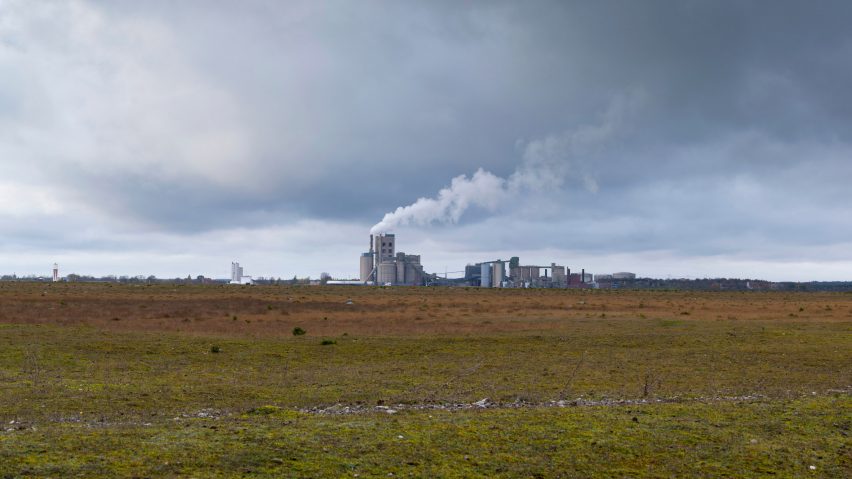
Sweden faces "very serious" economic impacts as environmental ruling threatens cement plant
The closure of Sweden's biggest cement factory on environmental grounds could cause up to 400,000 job losses and wipe out the country's GDP growth, according to an alliance of construction bodies.
Work could grind to a halt on three-quarters of all house-building projects and the construction sector could lose more than 20 billion Swedish Kronor (SEK) per month.
Work on infrastructure projects including Foster + Partners' Slussen masterplan in Stockholm could also be impacted.
The warning came from Byggföretagen, a body that represents construction firms in Sweden.
"Sweden is facing an extensive construction halt," it said. "By November, three out of four new homes will not be able to start construction. Several major infrastructure projects are stopped or delayed. Between 200,000 and 400,000 jobs are threatened."
Cement plant license rejected on environmental grounds
Byggföretagen based its figures on an impact assessment prepared in the wake of a decision by Sweden's Supreme Land and Environmental Court last week to reject a new mining licence for the Cementa cement plant at Slite in Gotland.
"The construction industry's share of GDP is about 11 per cent," Byggföretagen said. "The industry contributes almost SEK 40 billion in tax revenue to health care, schools and care. The construction halt thus risks displacing the entire GDP growth in 2022."

The plant, which is the second-largest source of greenhouse gas emissions in the country and responsible for three per cent of all Sweden's CO2 emissions, will no longer be able to mine limestone as a result of the ruling, meaning it may have to cease operations.
The licence was refused due to concerns over the plant's environmental impact assessment, particularly in relation to the impact on groundwater. Greenpeace has also accused the plant of using its kilns to incinerate toxic waste without a permit.
The court was concerned about high levels of chloride pollution in groundwater samples taken near the site, according to Swedish news organisation Dagens PS.
"The fact that environmental problems at one cement factory can send the whole construction industry of a country into a panic puts a light on both the climate crisis and critical supply chain and infrastructure problems in Sweden," Dagens PS journalist Daniel Jacobs told Dezeen.
Slite plant to be converted into carbon-neutral factory
The ruling means that the plant, which produces three-quarters of all the cement used in Sweden, will have to cease mining limestone in a nearby quarry on 31 October. Byggföretagen has demanded an urgent meeting with the government to discuss the ruling.
"The situation is very serious," said Byggföretagen's CEO Catharina Elmsäter-Svärd. "Sweden is facing an extensive construction halt. The cement shortage will have extensive consequences for the Swedish economy and employment."
The Slite plant has been earmarked for conversion into an experimental carbon-neutral factory by 2030 but parent company HeidelbergCement told Dezeen the court ruling could impact the timetable of the project.
Cementa is the only cement producer in Sweden. It has a second, smaller factory Skövde in the south of the country.
Cement generates 8 per cent of global emissions
Cement production is responsible for an estimated eight per cent of global carbon emissions. These are largely due to the way that limestone, which is the main ingredient in cement, is processed.
The rock is crushed and burned to extract calcium, which is the binding agent used in cement, releasing the carbon into the atmosphere in the process.
Several companies are investigating ways of producing emissions-free concrete including Carbicrete, which has developed a way of using industrial slag instead of cement as a binding agent.